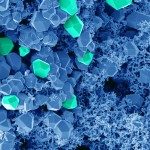A research engineer position for a talented researcher is available in the Bioorganic Chemistry of Nucleic Acids unit of the Pasteur Institute, Paris, France.
Topic. Digital data production has seen an exponential growth in the last decade and spawns the need for alternative and efficient storage media. Efficient storage media that could replace existing, mainly based on magnetic and solid-state, materials must encompass several criteria including high storage capacity and density, long-term storage capacity, high access speed, low cost of production, and sustainability. DNA represents an alluring nanomaterial to produce such devices since the theoretical storage capacity (∼4.5·107 GB/g) exceeds that of traditional media and the Watson-Crick base pairing rules offers a high degree of programmability which is paramount for the construction of nanomaterials. In addition, DNA can easily be replicated using polymerases which permits the copy of digital information at low cost and high efficiency; a feature that is not met in traditional media. Conceptually, simple algorithms can convert strings of bits into actual DNA sequences. These sequences can then be synthesized, mainly by phosphoramidite-based chemistry, in the process called “writing”. All these sequences are then grouped together into complex libraries and prepared for long term storage. Retrieving or “reading” of the digital information proceeds then via an inverted process, namely sequencing of the sequences and decoding back using the aforementioned algorithms. Modern sequencing methods such as NGS, nanopore, or sequencing by synthesis offer the possibility of analyzing large libraries of DNA sequences with high fidelity in very short time frames. On the other hand, synthetic access to longer (>150 nt) sequences with large (>1010) diversities is very limited and is certainly trailing behind existing capacity for reading complex DNA libraries which is a strong impediment for storage of digital information with DNA as medium (Nat. Biotechnol. 2022, 40, 47-53). In a recently funded PEPR grant supported by the ANR (project MOLECULARXIV), we propose to alleviate this shortcoming by developing alternative, chemoenzymatic methods to produce large DNA libraries suitable for storage of digital information.
Representative publications and patent: Chem. Eur. J. 2024, 30, e202400137; ChemRxiv 2024, 10.26434/chemrxiv-2023-vwwt5.
Profile. An MSc or a PhD in bioorganic chemistry, organic chemistry, or chemical biology with experience in synthesis of modified nucleoside phosphoramidites and solid-phase DNA synthesis. Knowledge in enzymatic DNA synthesis is a plus.
Conditions. The position is funded via the PEPR grant. The salary corresponds to the research engineer standard in France, including extended health coverage. The contract will be for 24 months. The position is available from September 2024, but the exact starting date is negotiable (within the last trimester of 2024 and first trimester of 2025). People with work permission in the EU will be prioritized.
Application: Send a single pdf document with a detailed CV, a cover letter, and the names and contacts of three references.
Materials should be emailed as a single PDF file to the principal investigator Marcel Hollenstein (marcel.hollenstein@pasteur.fr), who can be reached for informal inquiries about the project and the research unit.


